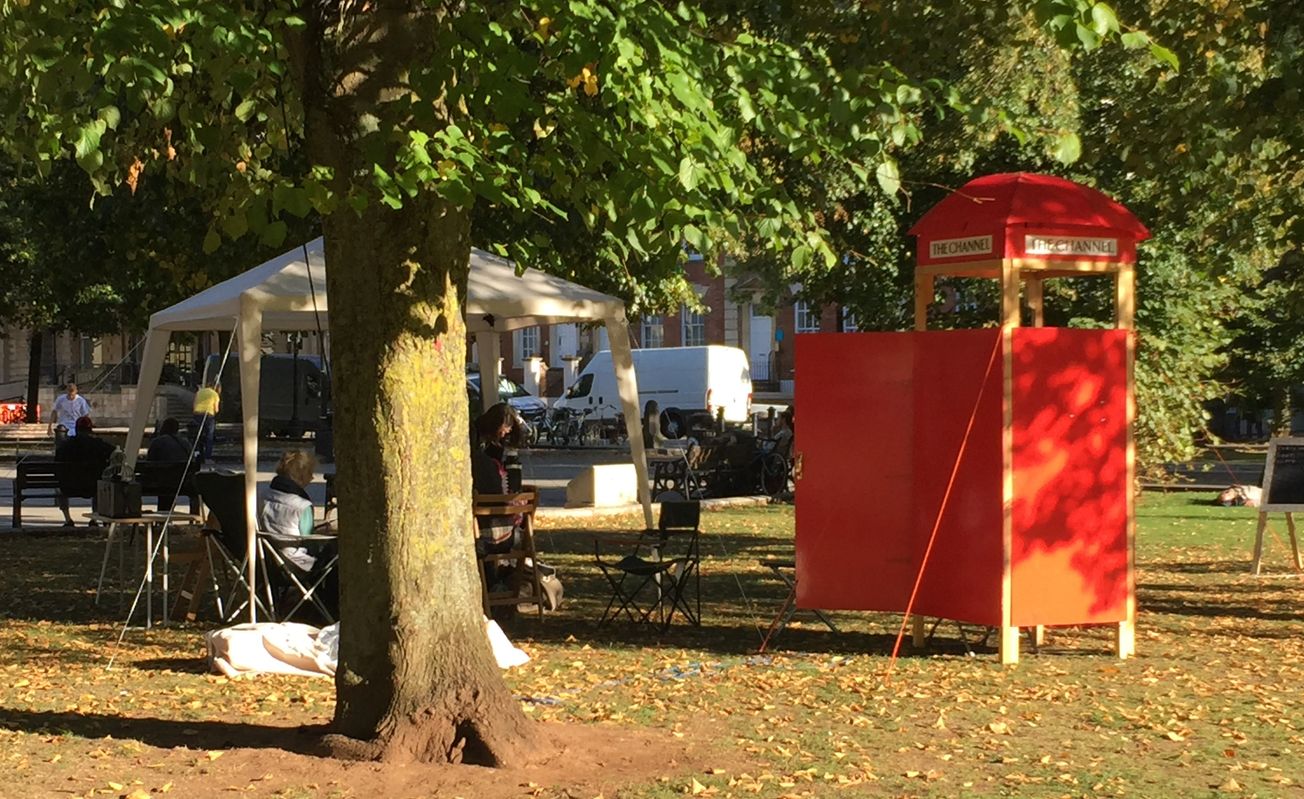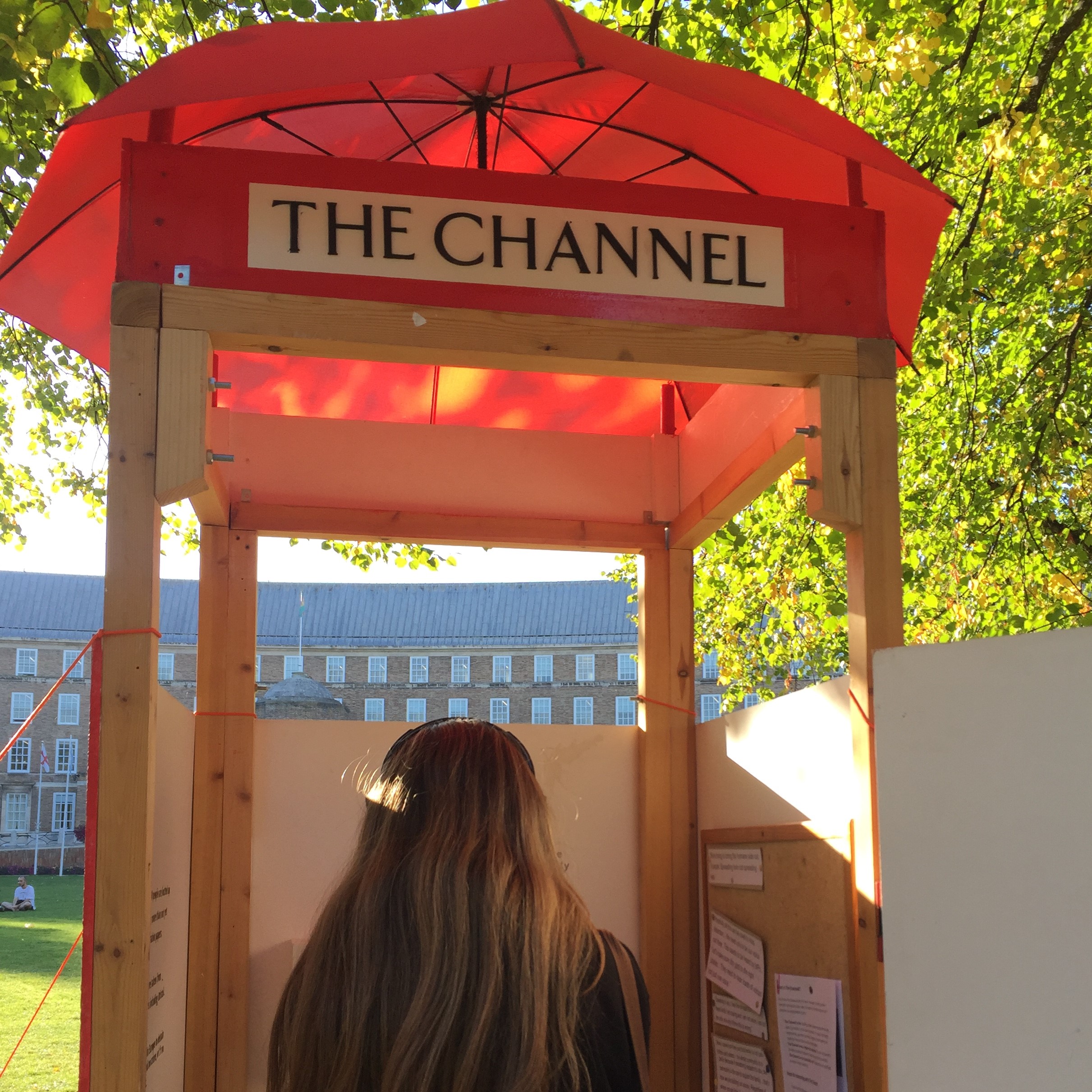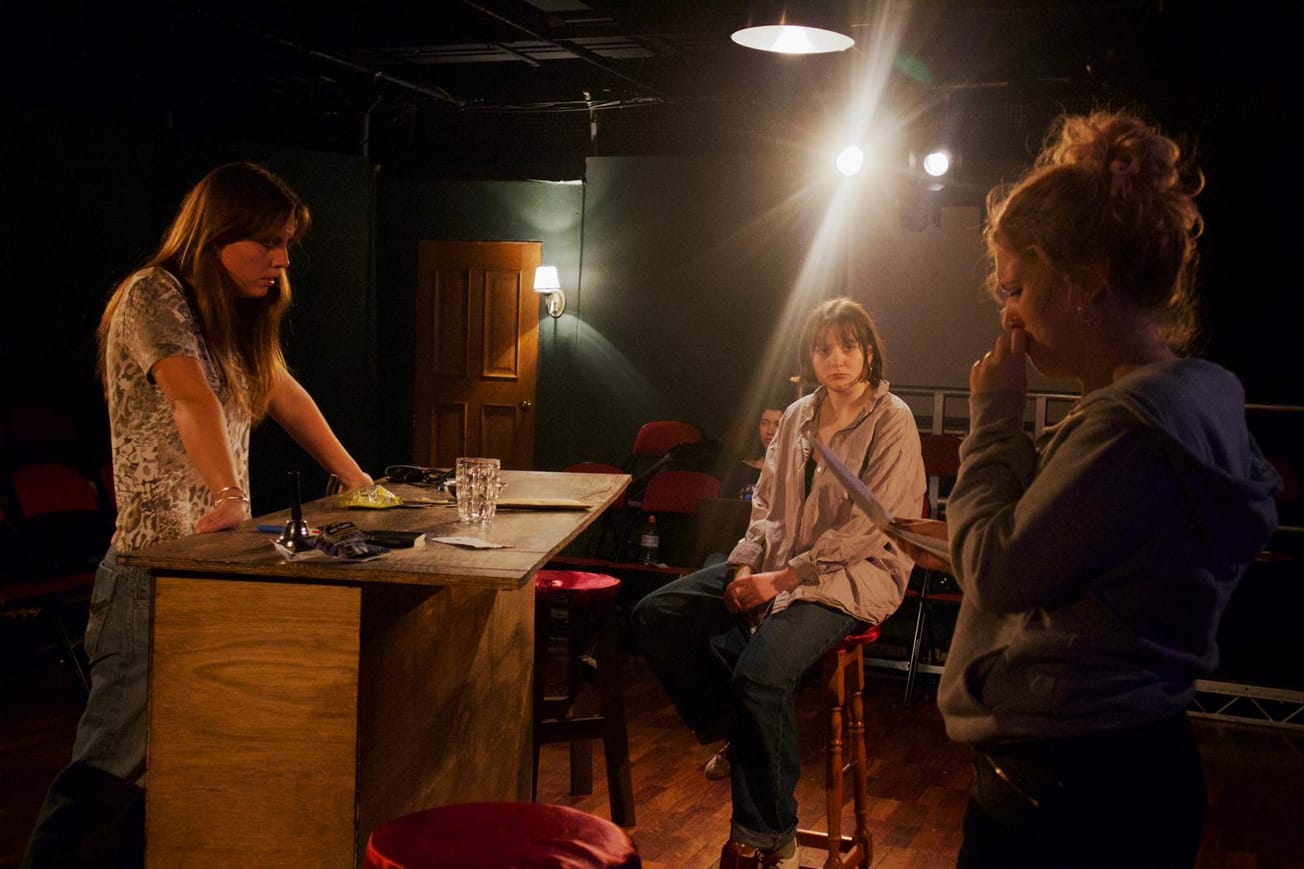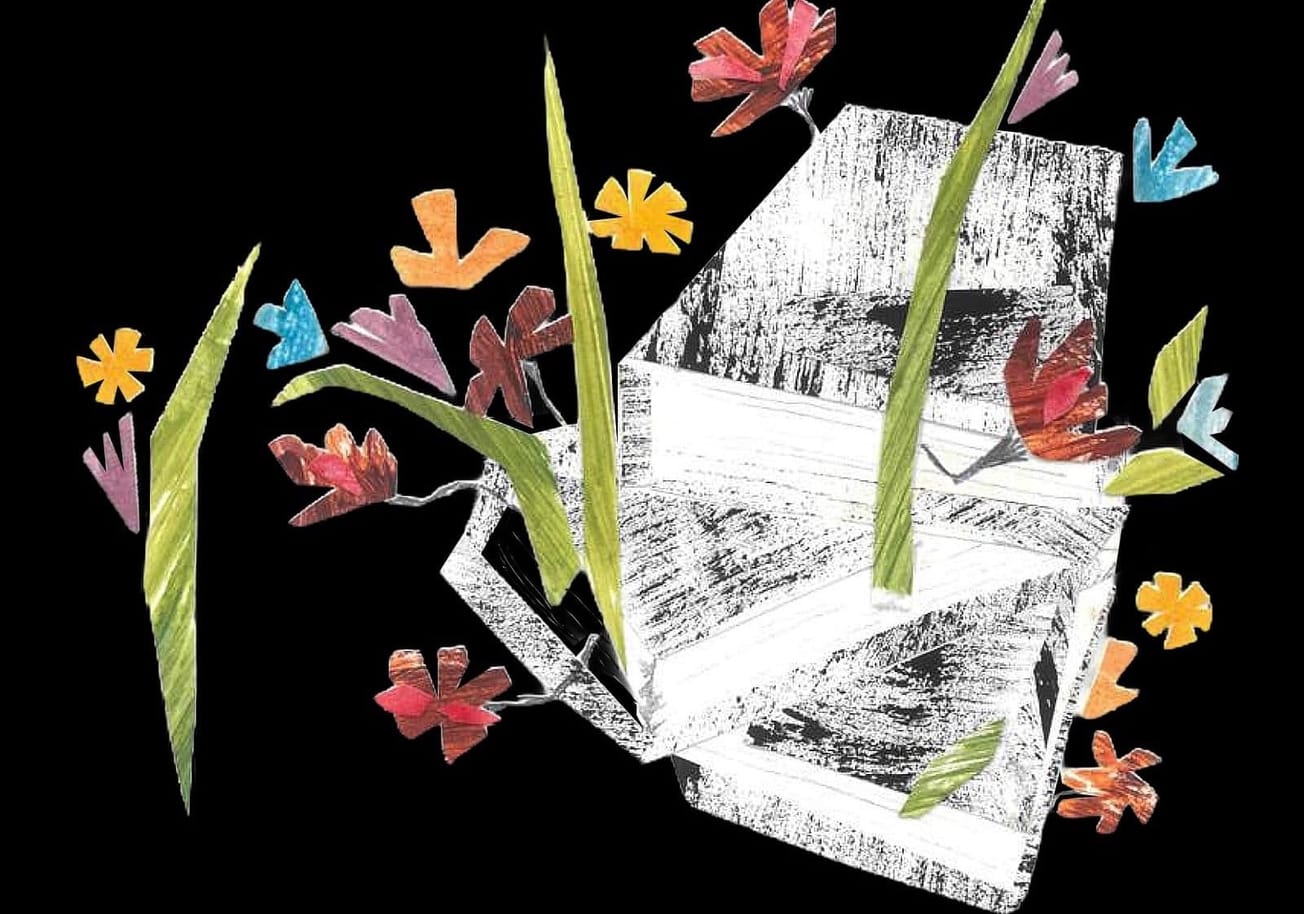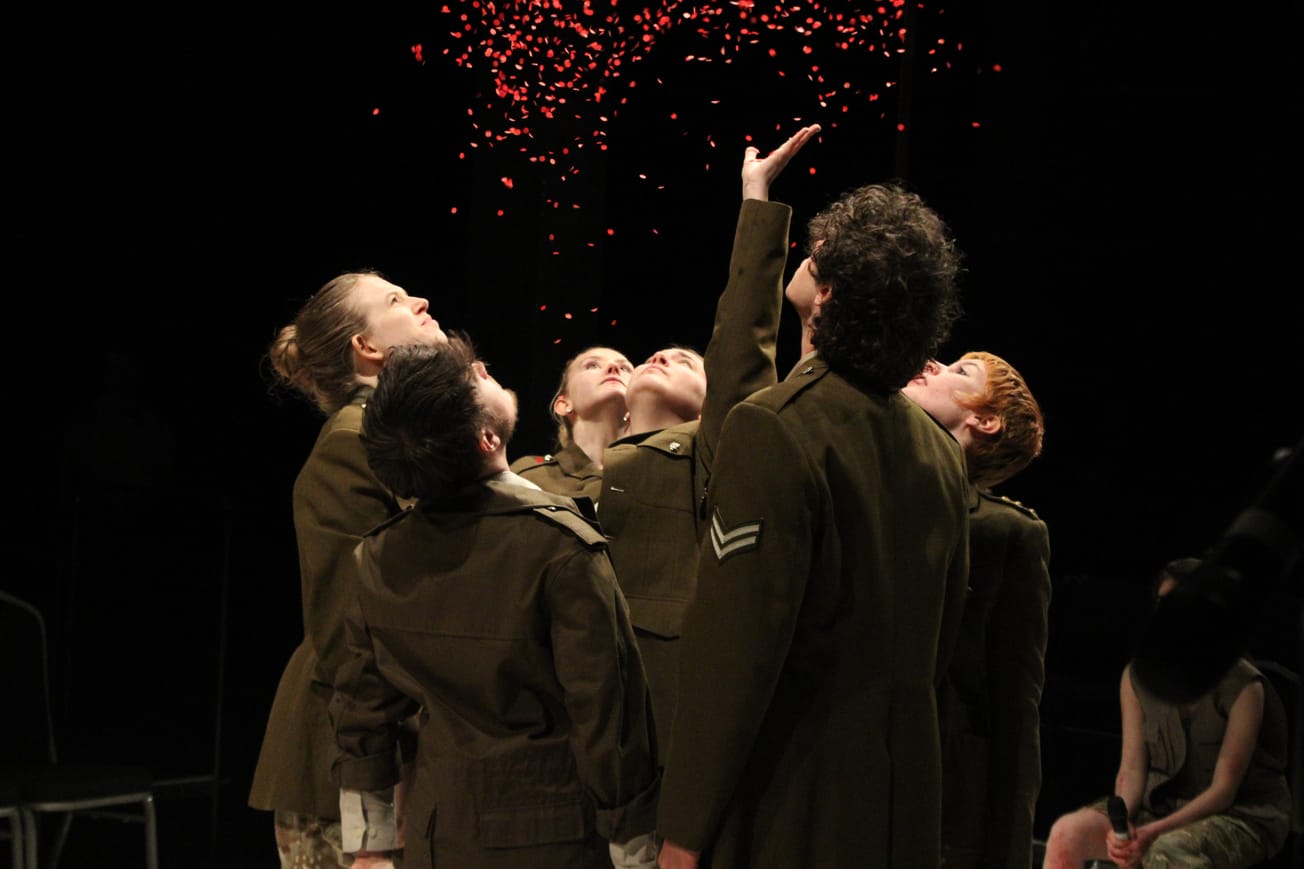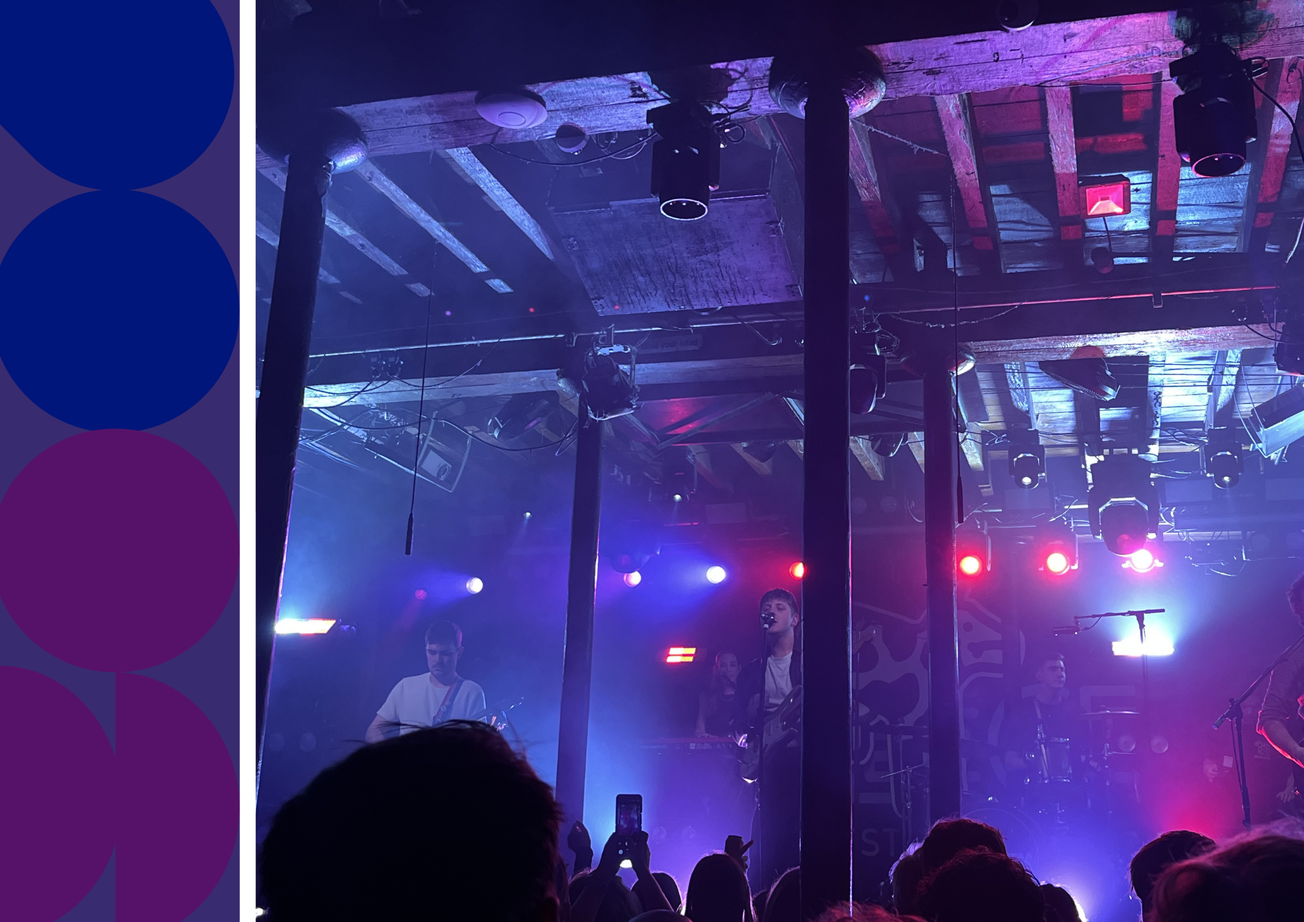Anjum Nahar and Carina Murphy reflect on Bristol's latest politically charged installation.
The UK’s immigration laws are complex, amorphous, informed by Theresa May's 'hostile environment', and liable to trip even the well-versed up. Rather than treating migrants with understanding when their applications take a long time coming through or are refused on the grounds of a single minor inaccuracy, this country’s policy is to place them in detention centres.
"rather than treating migrants with understanding ... this country’s policy is to place them in detention centres"
There are 9 such holdings, run either by private companies or the prison service, and for the 2,000 – 3,500 people (including children and the elderly) detained at any given time, life in them is hopeless and isolating.
Image credits: Epigram / Anjum Nahar
Funded by the Bristol City Council Arts Fund, a coalition of charities (Borderlands, Right to Remain, Detention Action, and These Walls Must Fall) brought 'The Channel’ to Bristol - an exhibition where, to listen to detainees' testimonies and send them a recorded response, you simply step inside a mock-up red telephone box. The exhibition aims to open up a dialogue about detention and, crucially, to allow those detained be part of it.
"It’s about putting the voices of detained people, who often feel powerless and silenced, at the centre of the conversation." -Isobel Tarr
— Right to Remain (@Right_to_Remain) August 26, 2018
We are proud to be supporting The Channel: Voices from Detention.
Bristol, 15-20 September#TheseWallsMustFallhttps://t.co/1IHDUQGBtm
Designed by Isobel Tarr, ‘The Channel’ came to Bristol between the 15th – 20th September, moving between Broadmead, College Green, and the Junction 3 Library in Easton. The aims of the exhibition seemed to shift with its location; on College Green, it served to inform passers-by who often expressed surprise at never having known such detention existed in the UK. Meanwhile, amongst the large migrant community in Easton, people were only too familiar with the issue. One woman told the story of how her brother’s detention led to his estrangement from their family, and many were eager to attend the exhibition's follow up meetings so they could take action.
"the exhibition aims to open up a dialogue about detention, and crucially, to allow those detained be part of it"
The exhibition’s design cleverly mimicks a red telephone box, which is known not only as a symbol of communication but as totemic of British culture. The sight of it in the street is familiar and benign; alongside a picnic table offering tea, coffee, and a tray of biscuits, it puts passers-by at ease and reduces the knee-jerk alienation and discomfort that issues like migration can provoke. At Junction 3 the exhibition made an even more concerted effort to bridge cultural divides by dishing out free Somalian food. This was less exotic than one might think given the high migrant population in Easton, but still distinct from the chequered tablecloth, red telephone box, tea, and biscuits of the main exhibition, which is all deliberately quintessentially British. The Queen’s crest which traditionally crowns a telephone box, however, is replaced with a red weather-proof umbrella because, as the artist reasoned, there are some things better left out.
80,000 people in the UK have to regularly report at their local Home Office immigration centre. At every visit, they might be taken to a #detention centre.
— These Walls Must Fall (@wallsmustfall) September 21, 2018
If you're worried about being detained, the Right to Remain Toolkit has lots of info to helphttps://t.co/4uxdREHtPO
‘The Channel’ was trialled in 2016 in Oxford, where it aimed to connect people with inhabitants of the Calais Jungle. It owes its name in part to the body of water that divides many migrants from reaching this country, and this serves as a reminder that while telephone conversations create a unifying channel between the public and detainees, they also symbolise an enduring distance between us. This is something that the exhibition is graciously aware of - unlike much political art, its aims don’t stop at informing the public; by encouraging people to attend the These Walls Must Fall community meeting and take action, it is geared towards producing tangible change.
"the UK is the only country in Europe where the time a person may spend in detention is indefinite"
The UK is the only country in Europe where the time a person may spend in immigration detention is indefinite. This can have severe mental health consequences for detainees, especially those who are already extremely vulnerable. One of the recorded messages in the exhibition, left by an anonymous male detainee, tells us that the uncertainty and anxiety created by indefinite detention can leave many who are confined within the terrible conditions of the detention centre feeling depressed or even suicidal. Indeed, a recent HMIC report reveals that at the infamous Yarl's Wood detention centre, 41% of residents felt depressed or suicidal during their stay. When speaking to Tarr, we heard that often people who have been released from detention found it hard to rehabilitate again into normal life.
‘The UK is the only country in Europe 2 detain migrants indefinitely–a human rights
— TheDetentionForum (@DetentionForum) September 22, 2018
abuse that undermines the whole immigration https://t.co/g5MtrZhdMa's psychological torture:even ppl who go in without mental health issues come out traumatised'.https://t.co/Duoc9AFef9 pic.twitter.com/6fzqFqX7bo
Conditions within detention centres are similar to the conditions within private prisons - largely due to the fact that they are often run by the same companies. Considering that one private prison in Birmingham was reported to be in a 'state of crisis' and filled with 'squalor' and 'filth', we can assume that the conditions within detention centres are hardly better. (Editor's note - G4S, the private firm previously in charge of this Birmingham prison, also runs Brook House immigration detention centre).
"while telephone conversations create a unifying channel between the public and detainees, they also symbolise an enduring distance between us"
Often, residents have no choice but to participate in in-house labour to rectify these poor conditions, sometimes working as cleaners and barbers, for example, only to receive the inhumane pay of £1-an-hour for their work. In our (Anjum and Carina's) opinion, detention centres benefit no one except the companies that profit from running them and the politicians who are looking to further implement the 'hostile environment' in the UK, designed to alienate migrants and make their stay in the country as difficult as possible in the name of immigration control.
Not only immigration #detention is cruel, unfair and ineffective but it's also costly.
— TheDetentionForum (@DetentionForum) September 21, 2018
£34,000 per person held per year. A stark contrast with an estimated annual cost of £4,968 using an electronic monitoring device whilst kept in the community. https://t.co/KVs96gUQHh pic.twitter.com/godxw0t1KI
Epigram readers may find it shocking that the University of Bristol could be seen complicit in the unjust detention of these people but, sadly, this is the reality. The university has contracts with Mitie and Capita, two companies that not only provide the university with software and project management services (Capita) and electrical works (Mitie) but also manage detention centres across the country. The People & Planet Society have launched a new campaign on campus called 'Undoing Borders' which aims to persuade the university to boycott these companies and delegitimize their involvement with detention. The society is also currently working with Tarr, with hopes of bringing 'The Channel' exhibition onto the university campus during term time so that more students can learn about the border industry, show solidarity with detention centre residents, and continue the dialogue between UK migrants and the wider society.
The These Walls Must Fall community meeting will take place on the 27th September, 6-9pm, in the Assisi Centre (Borderlands).
(Featured image credits: Epigram / Anjum Nahar)
What are your thoughts on 'The Channel'? Let us know in the comments below or on social media.

